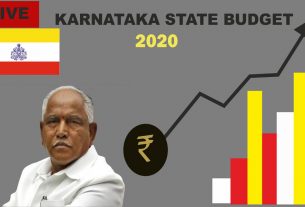Anonymous listening on mental health websites is helping people during their low times. But the qualification of those handling these helplines is questionable.
It’s midnight. You are tired of shifting positions on the bed for a couple of hours. You know that you need to talk it out. You feel choked. You are barely breathing and your chest is falling and rising rapidly.
You do not want to call up your friends, or your cousins, and reach out for physical help, but you need relief. You take your phone and search for mental health care. That’s when you found anonymous care.
Tech-based mental health care applications and websites are providing listening services to users on the condition of anonymity. People who are experiencing hard times can get connected to a volunteer listener, peer, and professional without disclosing their identity. Users feel free to share their feelings, and thoughts, that they wouldn’t share otherwise.

Anjana Suresh, who talked to a therapist online, said, “There’s this moment when I really felt helpless. I didn’t want to talk to anyone I know. I didn’t want to reach for physical help either. I searched on Google and found this website. It said that it will connect me to professionals anonymously. I chatted for 30 minutes. I felt better because I talked to someone.”
One such website is 7 Cups. A psychologist founded 7 Cups in 2013. The core part is that it gives a chance to anyone to volunteer as a listener to help others out. One just has to take online training and give a test before becoming a listener. Apart from this, one can connect with a therapist for a fee on this website.
Glen Moriarty, a psychologist and founder of 7 Cups said, “7 Cups is a free emotional support service that has reached over 65 million people. But some amount has to be paid to the therapist. 500,000 trained volunteer listeners provide support across 189 countries in 140 languages. Ninety percent of our population is under 30. Youth supporting peers is a core part of what we do on 7 Cups.”
The rising consumer base for these mental health care applications has several reasons. Deepa Patil, a psychiatrist from Santulan explained, “The easy accessibility this platform provides are good because one can pick up the phone and approach anyone. Anonymity is there. With a phone call, you don’t have to reveal your whereabouts.”
Further, Patil said, that we’re living in a fast age. Everyone is busy, and the concept of the joint family no longer exists. In metro cities, a lot of people don’t get anyone to listen to their problems and worries. Loneliness is being experienced at a higher level than it was earlier. Many times, all people need is just a listening ear.
Studies also suggest that people are becoming lonelier than before. Moreover, Indian youths are lonelier than the previous generation. The nuclear family, professional commitment, gadget addiction, and now pandemic all are confining people to themselves. A survey on Indian youths’ attitudes, anxieties, and aspirations by the Centre for the study of Developing Society in collaboration with Konrad Adenauer Stiftung, a political foundation based in Germany, states that eight percent of Indian youth felt lonely often.
Anonymity plays a big role for the larger user base. One can conceal their entire identity including gender on these platforms. Patil explained why anonymity is providing relief to people. She said, “People don’t like to go to a psychiatrist or visit a clinic. There are a lot of stigmas still associated with mental health, but with a phone call, you don’t have to reveal your identity or your whereabouts.”

A study on mental health stigma states that 70 percent of people who suffer from mental health problems receive no treatment. The reason behind this is first, lack of proper knowledge and then fear of stigma and discrimination. These lead to avoidance of treatment and discontinuation of treatment. A study states the prevalence of misconceptions about mental illness and a different attitude toward people diagnosed with mental illness.
However, these mental health platforms have drawbacks as well. Patil said, “People who are handling these helplines, you don’t know how qualified they are in situations like this.” She added that with mental health, things could go either way. One has to be very careful about what they are saying and how they are putting their point. Mental health professionals, psychologists, and psychiatrists avoid telling their patients what they need to do. The job is to help them arrive at the solution on their own. Lastly, she adds, “Someone who is not so qualified might not do a good job.”
Moreover, anxiety disorders and mental illnesses are prevalent in India. A study funded by the Bill & Melinda Gates Foundation, Indian Council of Medical Research, and Department of Health and Research, Ministry of Health was published in 2019. It revealed that 197.3 million people had mental disorders in 2017. Out of this 45.7 million had depressive disorders and 44.9 million had an anxiety disorder.




